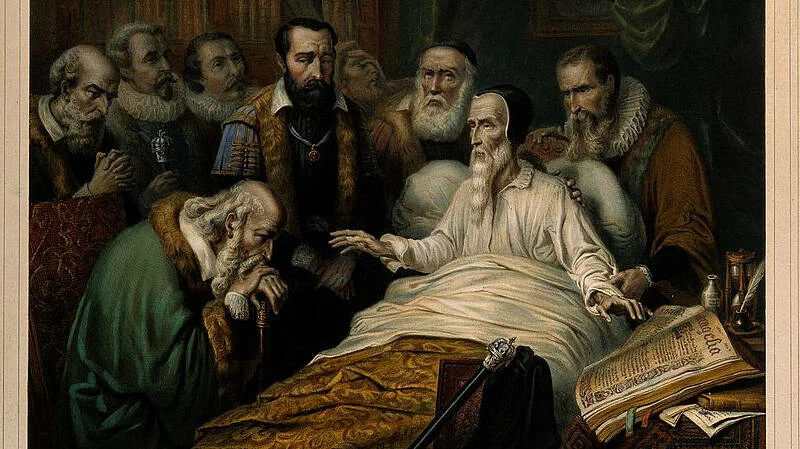As Paul’s discourse in Romans turns to Christian ethics at the beginning of Chapter 12, John Calvin (1509-1564) in his Institutes (3.7.1) finds in his opening statements the philosophical center for the Christian life. This life, he argues, begins with the assertion that we are not our own, but belong to God, and so believers must depart from themselves, their own needs, and their desires, and focus instead upon the service of God, presenting themselves to the Lord as living sacrifices.
Romans 12:1-2
Therefore, I urge you, brothers and sisters, in view of God’s mercy, to offer your bodies as a living sacrifice, holy and pleasing to God—this is your true and proper worship. Do not conform to the pattern of this world, but be transformed by the renewing of your mind. Then you will be able to test and approve what God’s will is—his good, pleasing and perfect will.
Commentary on Romans 12:1-2
Even though the law of the Lord provides the finest and best-disposed method of ordering a person’s life, it seemed good to the Heavenly Teacher to shape his people by an even more explicit plan to that rule which he had set forth in the law. Here, then, is the beginning of this plan: the duty of believers is “to present their bodies to God as a living sacrifice, holy and acceptable to him,” and in this consists the lawful worship of him. From this is derived the basis of the exhortation that “they be not conformed to the fashion of this world, but be transformed by the renewal of their minds, so that they may prove what is the will of God.” Now the great thing is this: we are consecrated and dedicated to God in order that we may thereafter think, speak, meditate and do nothing except to his glory. For a sacred thing may not be applied to profane uses without marked injury to him.
If we, then, are not our own but the Lord’s, it is clear what error we must flee, and whither we must direct all the acts of our life.
We are not our own: let not our reason nor our will therefore sway our plans and deeds. We are not our own: let us therefore not set it as our goal to seek what is expedient for us according to the flesh. We are not our own: insofar as we can, let us therefore forget ourselves and all that is ours.
Conversely, we are God’s: let us therefore live for him and die for him. We are God’s: let his wisdom and will therefore rule all our actions. We are God’s: let all the parts of our life accordingly strive toward him as our only lawful goal. O, how much has that person profited who, having been taught that he is not his own, has taken away dominion and rule from his own reason that he may yield it to God! For as consulting our self-interest is the pestilence that most effectively leads to our destruction, so the sole haven of salvation is to be wise in nothing and to will nothing through ourselves but to follow the lead of the Lord alone.
Let this therefore be the first step, that a person depart from himself in order that he may apply the whole force of his ability in the service of the Lord. I call “service” not only what lies in obedience to God’s Word but also what turns the human mind, empty of its own carnal sense, wholly to the bidding of God’s Spirit. While it is the first entrance to life, all philosophers were ignorant of this transformation, which Paul calls “renewal of the mind.” For they set up reason alone as the ruling principle in human beings, and think that it alone should be listened to; to it alone, in short, they entrust the conduct of life. But the Christian philosophy bids reason give way to, submit and subject itself to the Holy Spirit so that the person himself may no longer live but hear Christ living and reigning within him.
Romans 9-16, ed. Philip D.W. Krey and Peter D.S. Krey, Reformation Commentary on Scripture NT vol. 8, 124.





Comments
Be the first one to make a comment!